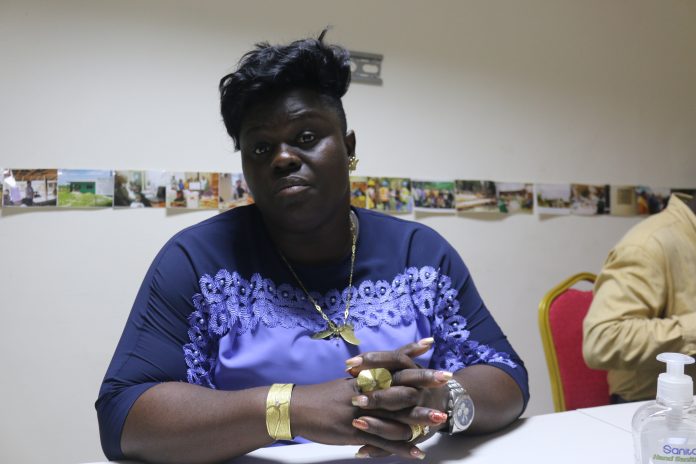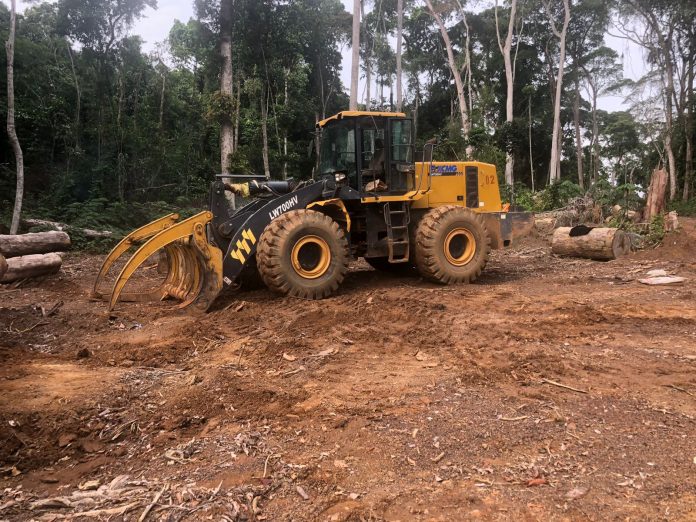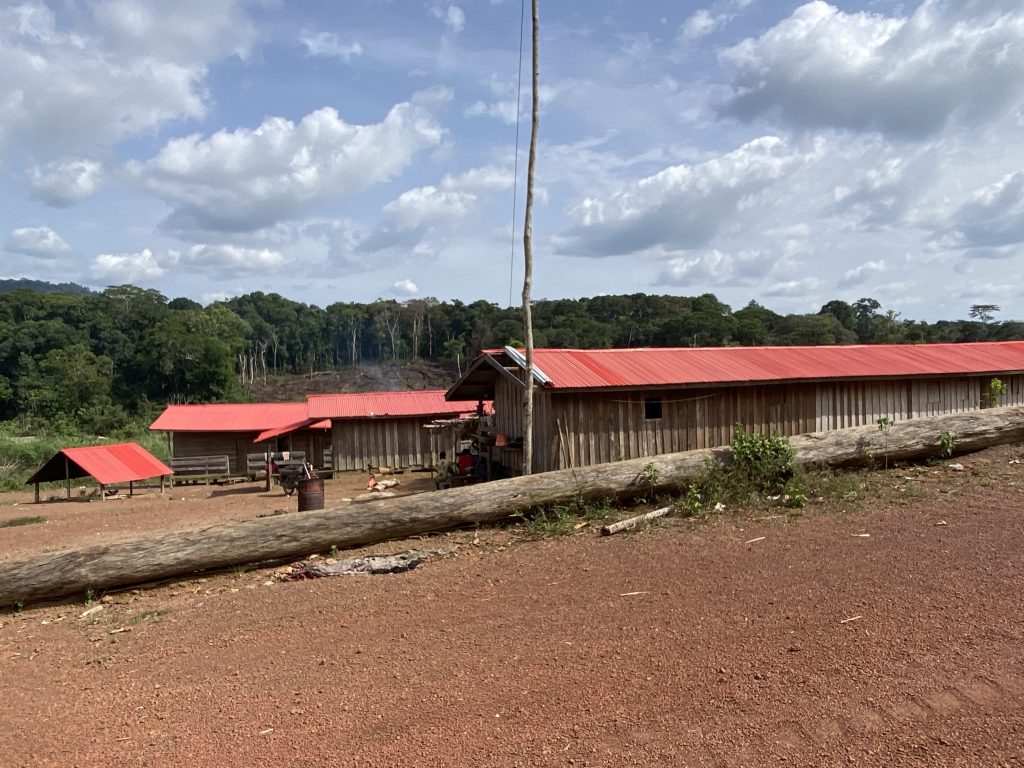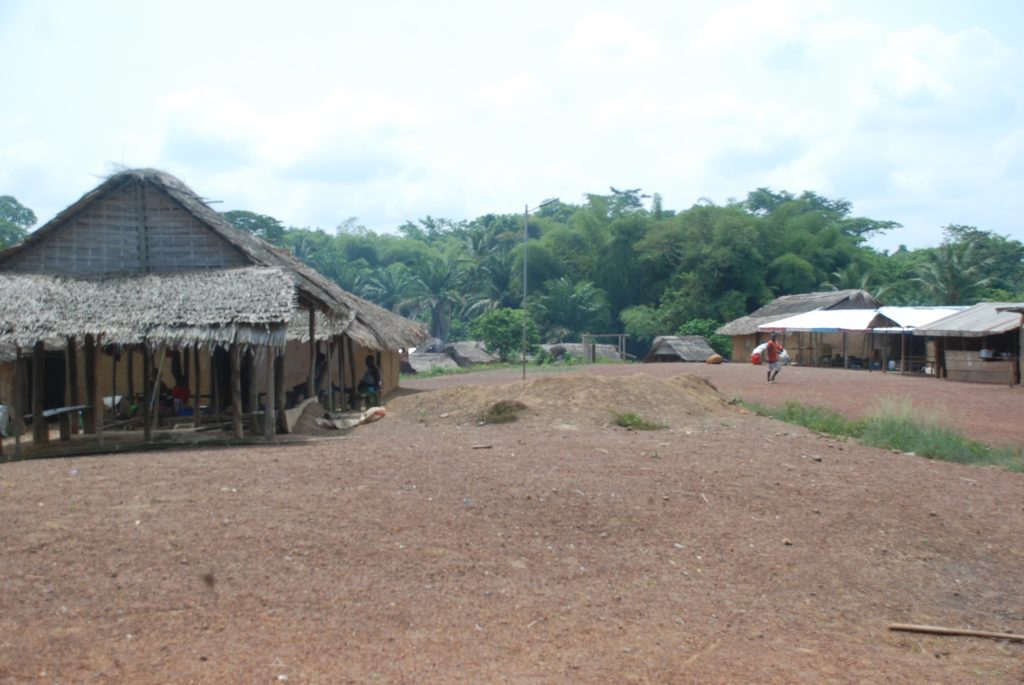Top: Deputy Managing Director Gertrude Nyaley seen here in 2020, was the technical manager of FDA’s legality verification department (LVD), and oversaw the export of 219 illegally harvested logs in August 2023. New Narratives/James Harding Giahyue
By Esau J. Farr
BUCHANAN, Grand Bassa County – LiberTrace, a computerized timber-tracking system, can detect one illegal log from a consignment of a thousand. So, it is pointless to say whether the system can identify multiple dirty logs in a consignment.
When LiberTrace identifies illegal logs, the Forestry Development Authority (FDA) is required to compel the exporting company to correct issues or remove problematic logs from a consignment, according to the FDA’s special operating procedures (SOPs).
But that was not the case with 219 logs a Chinese-owned firm headquartered in Paynesville exported on August 20, 2023. A LiberTrace analysis of the consignment shows that all 219 logs West Water Group (Liberia) Incorporated shipped had been illegally harvested.
The timber, with a volume of 1,266 cubic meters, were shipped through the Port of Buchanan to China on board MV Sheng LEC, a bulk carrier sailing under the flag of Panama. Most of the timber had been harvested in a Grand Bassa County community forest on the same day, July 19, 2023.
Built by SGS, a renowned verification company based in Switzerland, LiberTrace traces timber from its origin to its final destination. The FDA’s legality verification department (LVD) co-manages the system.
Illegal timber undermines the system, a crucial part of forestry reform to ensure Liberia does not flood domestic and international markets with illegal timber as it was during the country’s civil wars between 1989 and 2003.
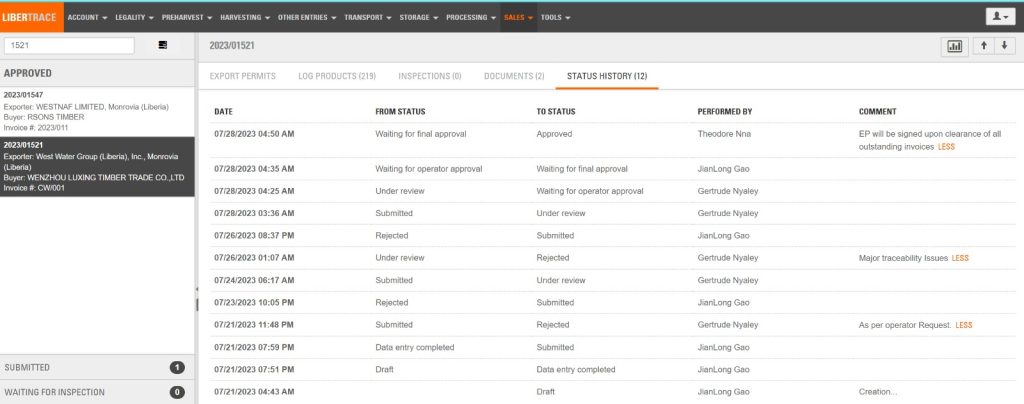
Warnings and errors
LiberTrace flags issues as “warnings” and “errors,” with the latter more serious than the former.
A closer review of the warnings and errors in West Water’s consignment LiberTrace red-flagged paints a grim picture. All the logs had multiple issues. The FDA had not approved the felling of 166 logs or over 75 percent of the shipment. One hundred and sixty-four logs were undersized and details of 144 did not match the records in LiberTrace.
“Diameter class is different of the one declared during inventory,” some of the issues read.
“Diameter below the minimum felling diameter,” others said.
The FDA’s SOPs for export allow the regulator to override LiberTrace’s red flags. In such an event, the FDA must justify the override for second or third-party auditing purposes. However, LiberTrace’s history of the export shows no justifications were made.
Deputy Managing Director for Operations Gertrude Nyaley, who headed LVD in 2023, thrice rejected the consignment.
Mrs. Nyaley’s last rejection occurred on July 26, 2023— Liberia’s Independence Day—due to “major traceability errors.” But miraculously, it was approved in less than 48 hours. There were no inspections of the consignment or corrections of the issues with the logs.
Theodore Nna, SGS’ project manager, who did not respond to queries for this story, only cared about payments. “[Export permit] will be signed upon all clearing of invoices,” said Nna, making no further comments.
An entirely dirty consignment is rare, even by the FDA’s poor standards—repeatedly fuelled by capacity gaps, noncompliance and impunity.
Nna and the FDA did not reply to inquiries for comments, the same with Mrs. Nyaley who oversaw exports in 2023, and West Water.
Last year, the FDA rejected reports it approved an export half of whose consignment comprised illegally harvested timber as a “misinterpretation” of export data. The regulator argued the errors and warnings LiberTrace identified were “normal occurrences” but struggled to explain inconsistencies that characterized the export.
Last week, another DayLight investigation found that the FDA had okayed the export of 267 dirty timber for a Nigerian-owned company.
This story was a production of the Community of Forest and Environmental Journalists of Liberia (CoFEJ).

